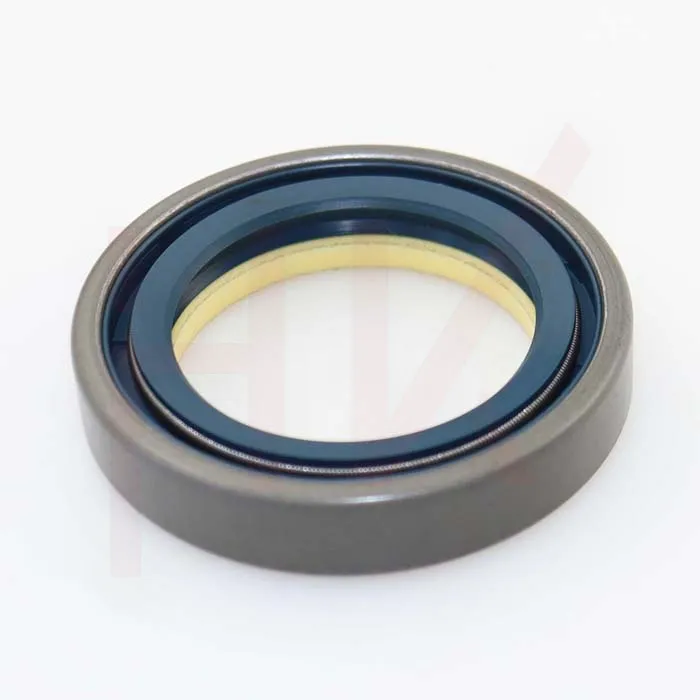Aug . 21, 2024 13:46 Back to list
High-Temperature Oil Seals for Enhanced Performance in Extreme Conditions
High Temperature Oil Seals Ensuring Reliability in Extreme Conditions
In various industrial applications, high temperature oil seals play a critical role in ensuring the longevity and efficiency of machinery. These specialized seals are designed to withstand elevated temperatures while preventing oil leakage, which can lead to catastrophic machinery failures and increased maintenance costs.
Understanding High Temperature Oil Seals
High temperature oil seals, often made from advanced elastomers such as fluorocarbon and silicone, are specifically engineered for high thermal stability and chemical resistance. Traditional sealing materials may fail at elevated temperatures, causing them to harden, crack, or deform. In contrast, high temperature oil seals maintain their flexibility and sealing properties, ensuring a reliable barrier against oil and other contaminants.
These seals are commonly used in various applications, including automotive engines, hydraulic systems, and industrial machinery. Each application presents unique challenges, such as exposure to extreme temperatures, pressures, and chemicals. Therefore, manufacturers of high temperature oil seals must consider a multitude of factors to ensure optimal performance.
The Importance of Material Selection
The material used in high temperature oil seals is crucial to their performance. For instance, fluorocarbon rubber, known for its excellent heat resistance and low friction properties, is often employed in environments with continuous operating temperatures exceeding 200°C (392°F). Silicone, on the other hand, offers superb thermal stability and is often selected for applications that require flexibility in extreme temperatures ranging from -60°C to 230°C (-76°F to 446°F).
Additionally, high temperature oil seals must be resistant to oil degradation. Mineral oils, synthetic oils, and bio-based oils all have different chemical properties, which can impact the seal's longevity. Therefore, it is vital to select a seal material that is compatible with the specific oil type used in the application.
high temperature oil seal

Performance Characteristics
One of the primary functions of high temperature oil seals is to prevent leakage. A well-designed seal creates a tight barrier that not only stops oil from escaping but also keeps contaminants such as dust and dirt from entering the system. Effective sealing reduces the risk of failure in machinery, leading to enhanced operational efficiency and extended service life.
Moreover, high temperature oil seals must ensure minimal friction as they rotate or move with the equipment. Excessive friction can cause overheating and wear, which ultimately compromises the seal’s integrity. Engineers often use specialized designs and surface finishes to reduce friction and improve the longevity of the seals.
Testing and Quality Assurance
To ensure the reliability of high temperature oil seals, rigorous testing and quality assurance processes are essential. Manufacturers typically conduct a series of tests under varying conditions, including extreme temperatures and mechanical stress, to evaluate the seal’s performance. This meticulous testing not only assesses the seal's resistance to thermal degradation but also its ability to function effectively under pressure.
Certificates such as ISO or ASTM standards may also be involved to assure clients of the seal’s quality and performance specifications. These standards help ensure that the seals will perform reliably in demanding applications and minimize the risk of unexpected machinery failures.
Conclusion
High temperature oil seals are paramount in industries where high performance under extreme conditions is required. By offering effective sealing, material durability, and low friction characteristics, these seals contribute significantly to the efficiency and reliability of machinery. Investing in quality high temperature oil seals is essential for industries looking to enhance their operational performance and reduce maintenance costs, making them a worthwhile consideration for engineers and decision-makers alike.
-
Wiper Oil Seal: Our Commitment to Clean Hydraulics
NewsAug.13,2025
-
Hydraulic Oil Seal for Self Discharging Cars
NewsAug.13,2025
-
Hub Oil Seal for Agricultural Tractor Hubs
NewsAug.13,2025
-
Skeleton Oil Seal with NBR Material
NewsAug.13,2025
-
Rotary Lip Seal for High Pressure Applications
NewsAug.13,2025
-
Cylinder Seal Kits Our Legacy of Hydraulic Trust
NewsAug.13,2025
-
Unlocking the Potential of Hydraulic Systems with Essential Sealing Solutions
NewsAug.06,2025
Products categories
















